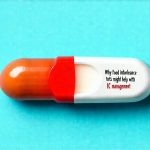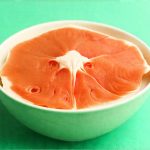Prostate health is often overlooked until issues arise, yet it’s a crucial component of overall well-being for men. Many factors influence prostate function, ranging from genetics to lifestyle choices. While age and family history are unavoidable, dietary adjustments represent a powerful, proactive step individuals can take to support their prostate health. A growing body of research highlights the significant impact nutrition has on reducing risks associated with common prostate concerns, as well as promoting optimal functionality throughout life. This isn’t about restrictive diets or complicated regimens; it’s about making informed food choices and incorporating simple adjustments that yield substantial benefits.
The connection between diet and prostate health stems from the role of various nutrients in mitigating inflammation, supporting hormonal balance, and protecting against cellular damage. Chronic inflammation is implicated in several prostate conditions, while imbalances in hormones like testosterone can also contribute to issues. Furthermore, antioxidants play a vital role in neutralizing free radicals, which are unstable molecules that can damage cells. Therefore, focusing on foods rich in these protective compounds – and limiting those that exacerbate inflammation or hormonal disruption – is key to proactive prostate care. This article explores straightforward dietary strategies designed to enhance prostate health, offering practical advice you can begin implementing today.
The Power of Plant-Based Foods
A cornerstone of prostate health lies in embracing a plant-rich diet. Vegetables, fruits, legumes, and whole grains are packed with phytonutrients, naturally occurring compounds that offer potent health benefits. Specifically, foods rich in lycopene, sulforaphane, and anthocyanins have shown promise in supporting prostate function. Lycopene, found abundantly in cooked tomatoes, watermelon, and pink grapefruit, is a powerful antioxidant linked to reduced risk of prostate cancer and benign prostatic hyperplasia (BPH). Sulforaphane, present in cruciferous vegetables like broccoli, cauliflower, and kale, aids in detoxification processes and may help protect against cellular damage. Anthocyanins, responsible for the vibrant colors of berries, cherries, and purple cabbage, possess anti-inflammatory properties that can contribute to overall prostate health.
Beyond these specific nutrients, a plant-based diet naturally limits processed foods, saturated fats, and excessive red meat – all factors that can negatively impact prostate function. Increasing your intake of fruits and vegetables also ensures adequate fiber consumption, which supports digestive regularity and helps maintain a healthy weight, both essential for overall well-being. Consider incorporating at least five servings of fruits and vegetables into your daily routine, prioritizing those known to be particularly beneficial for the prostate.
Furthermore, legumes – beans, lentils, and peas – provide plant-based protein and fiber while contributing to hormonal balance. Isoflavones found in soybeans may help regulate testosterone levels, potentially reducing the risk of prostate enlargement or cancer development. It’s important to remember that dietary changes are most effective when incorporated consistently over time; small, sustainable shifts yield far better results than drastic, short-lived restrictions.
Incorporating Lycopene-Rich Foods
Lycopene isn’t readily absorbed by the body in its raw state. Therefore, cooking tomatoes actually increases their bioavailability—meaning your body can utilize more of this beneficial compound. This is why tomato paste, sauce, and cooked tomatoes are excellent sources. Beyond tomatoes, watermelon and pink grapefruit also contain lycopene, though in lower concentrations. Here’s how to maximize your intake:
- Add a tablespoon or two of tomato paste to soups, stews, or pasta sauces.
- Enjoy a glass of 100% tomato juice daily.
- Include watermelon slices as part of your breakfast or snack.
- Regularly consume cooked tomatoes in salads or as a side dish.
It’s also worth noting that combining lycopene-rich foods with healthy fats can further enhance absorption, as lycopene is fat-soluble. A drizzle of olive oil over a tomato salad, for example, optimizes its beneficial effects. This simple addition to your diet doesn’t require significant effort but offers substantial benefits in terms of prostate health.
The Broccoli Advantage & Sulforaphane
Cruciferous vegetables are nutritional powerhouses, and broccoli stands out as a particularly valuable choice for prostate health due to its high sulforaphane content. Sulforaphane stimulates the body’s natural detoxification enzymes, helping eliminate toxins that can contribute to cellular damage and inflammation. Interestingly, the amount of sulforaphane released varies depending on how broccoli is prepared.
- Chopping or chewing broccoli activates myrosinase, an enzyme that converts glucoraphanin (a precursor to sulforaphane) into its active form.
- Lightly steaming broccoli preserves more sulforaphane than boiling it.
- Combining broccoli with mustard seed powder further enhances sulforaphane production due to the presence of myrosinase in mustard seeds.
Aim for at least one serving of cruciferous vegetables, including broccoli, cauliflower, kale or Brussels sprouts, several times a week. Incorporating these into stir-fries, salads, or as side dishes is an easy way to boost your sulforaphane intake and support prostate health.
Berries & Anti-Inflammatory Power
Berries – blueberries, strawberries, raspberries, and cranberries – are brimming with anthocyanins, powerful antioxidants that combat inflammation. Chronic inflammation is a key contributor to many prostate conditions, making anthocyanin-rich berries an invaluable addition to your diet. Regularly consuming berries can help neutralize free radicals, protect against cellular damage, and support overall prostate health.
Consider these ways to incorporate more berries into your daily routine:
- Add blueberries or raspberries to your morning oatmeal or yogurt.
- Snack on a handful of strawberries throughout the day.
- Blend frozen berries into smoothies.
- Use cranberries in sauces for poultry or pork.
Smart Hydration & Dietary Adjustments
Beyond specific foods, maintaining adequate hydration is vital for prostate health. Water helps flush out toxins and supports optimal urinary function, reducing the risk of infections and inflammation. Aim to drink at least eight glasses of water daily, adjusting based on activity level and climate. Herbal teas, such as green tea (rich in antioxidants) or dandelion root tea (a natural diuretic), can also contribute to hydration while offering additional health benefits. Avoid excessive consumption of sugary drinks, caffeine, and alcohol, as these can dehydrate the body and potentially exacerbate prostate issues.
Furthermore, reducing intake of saturated fats and processed foods is crucial. These dietary components are linked to increased inflammation and hormonal imbalances, both detrimental to prostate health. Replace unhealthy fats with healthy alternatives like olive oil, avocado, nuts, and seeds. Limit red meat consumption and choose lean protein sources such as fish, poultry, or plant-based proteins. Reading food labels carefully and prioritizing whole, unprocessed foods is essential for making informed dietary choices.
Finally, mindful eating practices play a role. Eating slowly, chewing thoroughly, and paying attention to hunger cues can aid digestion and prevent overeating. This promotes healthy weight management, which is important as obesity has been linked to an increased risk of prostate cancer and BPH. Dietary changes aren’t about deprivation; they’re about making conscious choices that support your overall health and well-being.
It’s essential to remember that this information should not be taken as medical advice. Always consult with a healthcare professional for personalized guidance on maintaining optimal prostate health.





















